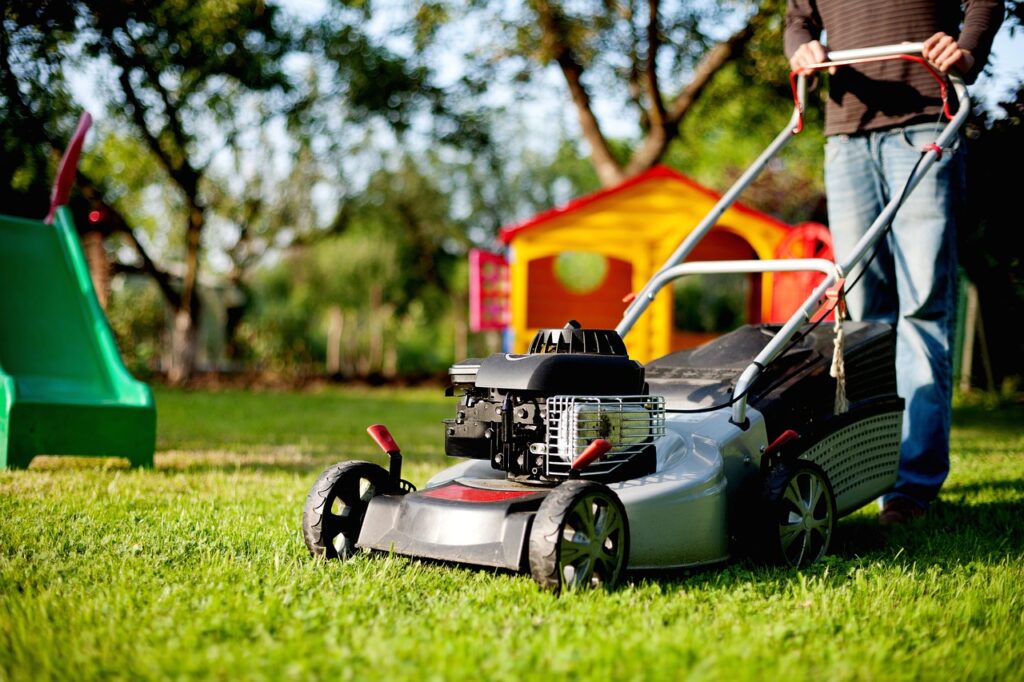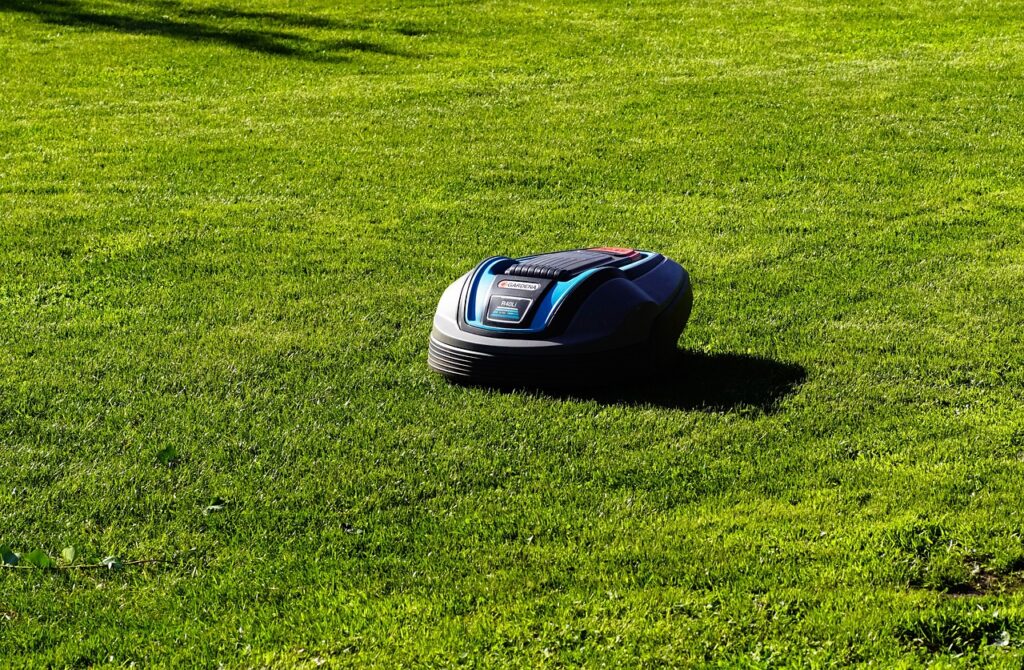Precision and efficiency are key qualities for any commercial mower. Slope mowers, specifically designed for tackling hills and steep inclines, offer unique benefits, but how do they stack up against zero-turn mowers? While both types excel in different environments, each comes with its own set of advantages and limitations depending on the terrain.
If you’re in the market for a new mower for your commercial or residential landscaping needs, read on as we compare different models to help you choose the best option.
How Does a Zero-Turn Mower Work?
A zero-turn mower with tracks is a specialized type of mower that replaces the traditional wheels with tracks on the rear. This design allows the mower to achieve a “zero-turn” radius, meaning it can pivot in place, offering exceptional maneuverability. In contrast, tractor mowers often struggle to turn sharply, making them less efficient in tight spaces.
The key difference between a zero-turn mower with tracks and a tractor mower lies in their steering mechanisms. On a zero-turn mower, the rear tracks or wheels control the direction, and the operator uses levers or controls to steer. This precise steering is especially crucial when mowing on uneven terrain, such as hills.
However, despite their advanced design, zero-turn mowers—especially those with tracks—are generally not recommended for steep inclines. The risk of tipping over increases on hills, so safety precautions must be taken when using these machines on sloped ground.
Steering and Performance: Zero-Turn Mowers vs. Slope Mowers
Zero-Turn Mowers
Zero-turn mowers equipped with tracks are well-suited for flat terrain, providing excellent maneuverability. These mowers are designed to turn effortlessly without the need to reposition the entire machine, thanks to their hydraulic steering systems. This makes them easier to control compared to traditional lawn tractors, particularly in tight spaces.
However, when it comes to hills and slopes, zero-turn mowers can encounter challenges. These mowers are generally not recommended for mowing steep inclines, as turning on a hill can compromise stability and increase the risk of tipping. Zero-turn mowers also operate in a horizontal cutting pattern, meaning sharp turns on sloped surfaces can lead to dangerous rollovers. For safety, OSHA recommends that zero-turn mowers not be used on slopes greater than 15 degrees. Additionally, regular maintenance of hills is crucial to prevent erosion, but using a zero-turn mower in such conditions can be risky.
Slope Mowers
Slope mowers, on the other hand, are specifically engineered for steep inclines. These mowers come with advanced stabilizers and specialized steering systems that allow them to safely navigate hills and slopes. Remote-controlled slope mowers are especially useful in areas where it would be unsafe for an operator to ride, offering increased safety and efficiency.
Machines like the MC700 mower are designed to tackle extremely steep terrain, capable of handling inclines up to 60 degrees both horizontally and vertically. They also feature precision cutting and mulching blades that help maintain the health of the grass, reducing the need for additional fertilization. This makes slope mowers a far better choice for managing challenging, hilly landscapes while preserving the integrity of the environment.
Safety Features
Zero-Turn Mowers
Zero-turn mowers, especially those with tracks, can present safety challenges when working on hills, embankments, and steep slopes. While the zero-turn radius allows for exceptional maneuverability, operating on steep inclines increases the risk of tipping. If the mower’s angle is too steep, it may tip over, potentially injuring the operator or anyone nearby. This makes steep slopes a hazardous environment for zero-turn mowers, requiring caution and proper technique to avoid accidents.
Slope Mowers
Slope mowers, such as MC700, are specifically designed for safe operation on steep terrains. These mowers feature a patented drive system and skid steering for enhanced stability, ensuring safer handling on hillsides. Additionally, remote-controlled operation allows the operator to stay at a safe distance (up to 500M), significantly reducing the risk of injury from potential rollovers. By controlling the mower remotely, operators can work on dangerous slopes without exposing themselves to the hazards of working on the incline.
Zero-Turn Mowers
One of the main advantages of zero-turn mowers is their ability to significantly reduce mowing time. These mowers can reach speeds over five miles per hour, making them ideal for covering large, flat areas quickly. When compared to walk-behind mowers or lawn tractors, zero-turn mowers are notably faster and more efficient.
However, zero-turn mowers are not always the best option for every terrain. They can struggle with very tall grass or thick brush, which can be difficult or even impossible for the mower to handle. Additionally, they are often too large to fit into tight spaces, such as those under solar panels or around obstacles, requiring operators to use manual brush cutters in these areas. This extra work can be time-consuming, exhausting, and potentially unsafe for crews working in hot conditions.
Slope Mowers
Remote-controlled slope mowers offer greater versatility and efficiency in challenging terrains. These mowers, are compact and designed for specific tasks, such as mowing under solar panels. The lowered profile and open metal mesh design not only allow for better cooling but also enable operators to reach areas that larger mowers cannot. By removing the need for manual labor in tight or difficult spaces, remote-controlled slope mowers reduce physical strain on operators and enhance productivity without compromising safety.
With remote-controlled mowers, you don’t have to compromise on productivity. A single MC700 mower can match the output of 20 operators using brush cutters. These mowers are not only efficient but also highly durable, designed to tackle various terrains with precision and ease.
Wrapping Up
If you’re in the market for a commercial lawn mower for landscaping, you’re likely dealing with a variety of terrains and conditions each day. To handle this range of challenges, it’s essential to choose a mower that can adapt and perform efficiently day after day.
Slope mowers, particularly remote-controlled models, are an excellent choice for tackling waterlogged fields, thick brush, tall grass, and steep slopes. MC700 mowers stand out with their innovative design, exceptional cutting quality, and patented drive system. Whether you’re navigating rough terrain or mowing slopes, a MC700 mower delivers precise cuts while also mulching the grass, ensuring superior efficiency and performance.


